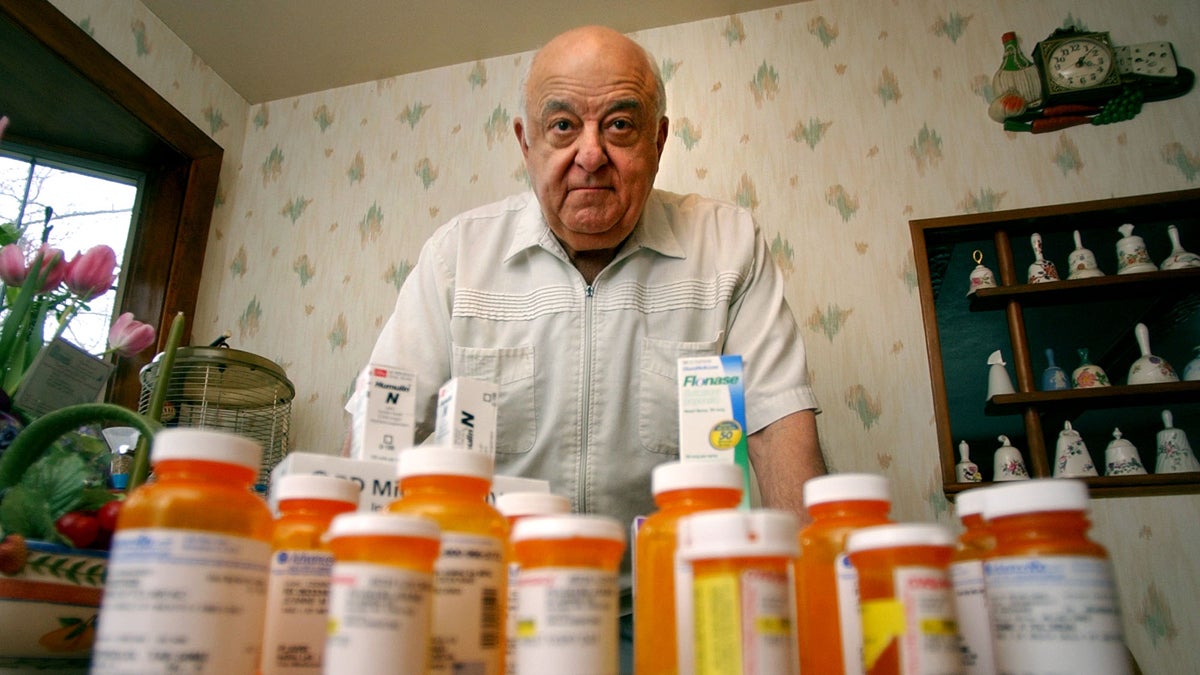Seniors save millions on prescriptions with Affordable Care Act

A man poses in the kitchen of his home with his wife's daily medication. (Charles Krupa/AP Photo)
For many years, seniors needing prescription drugs have had to pay out of pocket if they fall in between regular and catastrophic Medicare coverage. But thanks to the Affordable Care Act, that has begun to change.
The gap in Medicare’s drug benefits has been dubbed the “doughnut hole.” If you’re under a certain amount, you’re fine — but cross a threshold, and you’ll need to shell out. In 2014, if your costs go beyond $4,550, the government will step in again.
“For people with relatively high drug bills, the doughnut hole has been a real problem,” said Tricia Neuman, senior vice president of the Kaiser Family Foundation and director of its program on Medicare policy. “For some, it means that their drugs are unaffordable when they go to the pharmacy. That’s obviously not good from a public health point of view if people aren’t able to take the drugs that their doctors prescribed.”
The Affordable Care Act included a provision to remedy the problem.
In the first year, eligible seniors received a $250 rebate. Starting in 2011, the health law began to phase out the coverage gap, offering an increasing discount for brand-name and generic drugs.
This year, Medicare enrollees receive a 52.5 percent discount on brand-name drugs and a 28 percent discount on generics. By 2020, the government will eliminate the gap.
Fiscally, Neuman said, the insurance expansion comes at a good time.
“Medicare drug spending is lower than the actuaries have been predicting,” she said. “So Medicare drug spending has been growing at a relatively slow rate.”
So far the savings to enrollees total $732 million in Pennsylvania; $610 million in New Jersey; and just over $55 million in Delaware.
WHYY is your source for fact-based, in-depth journalism and information. As a nonprofit organization, we rely on financial support from readers like you. Please give today.

